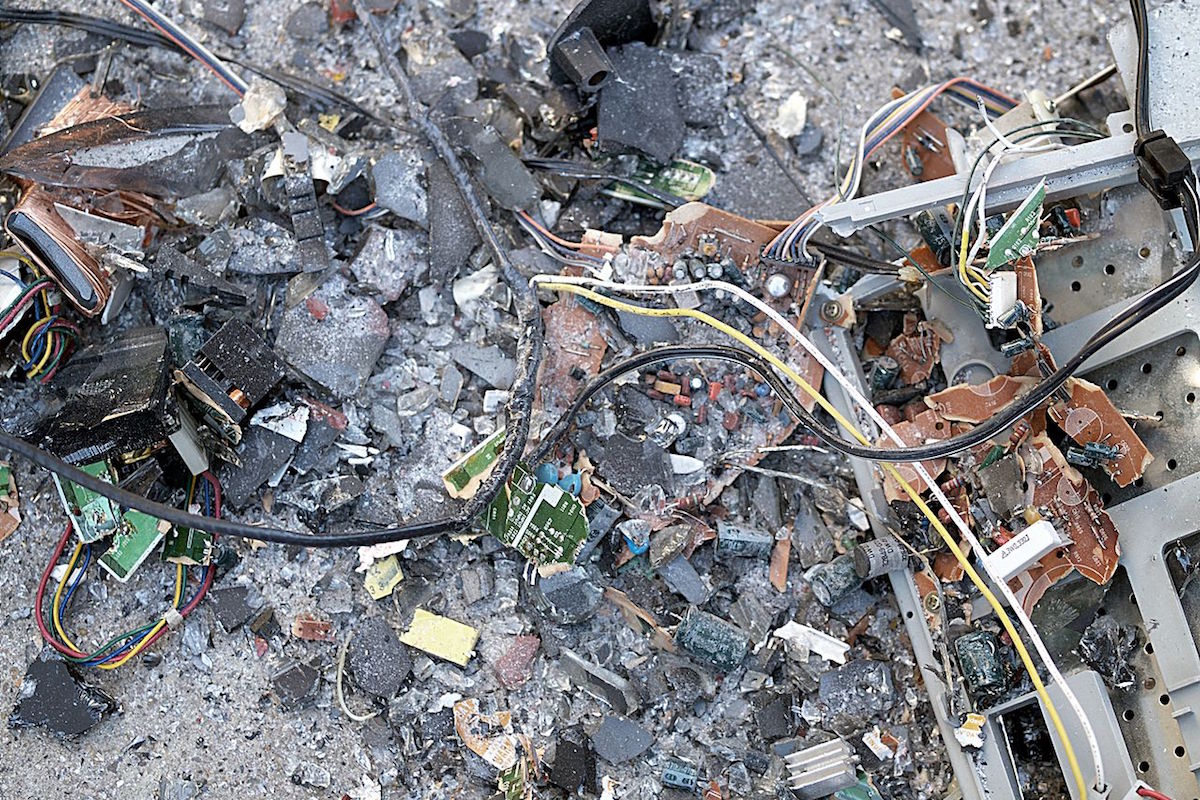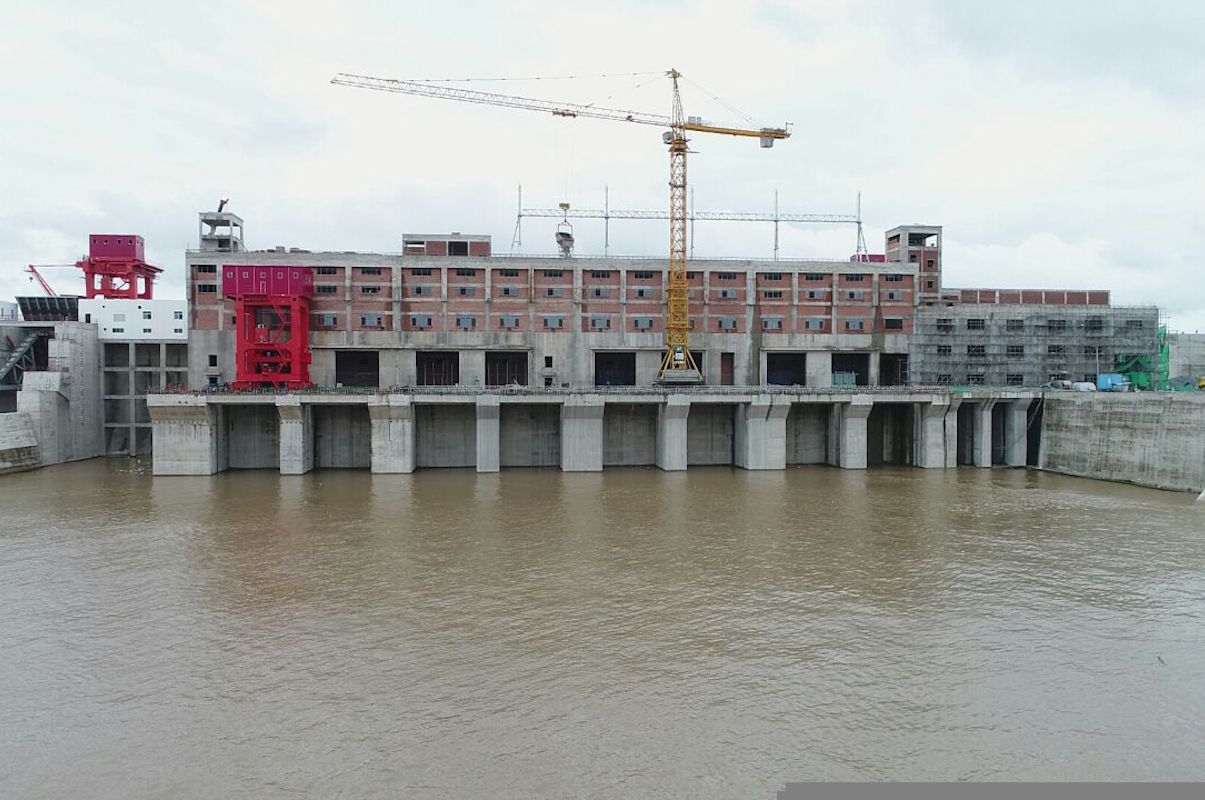At a deserted factory outside Bangkok, skyscrapers made from vast blocks of crushed printers, Xbox components and TVs tower over black rivers of smashed-up computer screens.
This is a tiny fraction of the estimated 50m tonnes of electronic waste created just in the EU every year, a tide of toxic rubbish that is flooding into south-east Asia from the EU, US and Japan.
Thailand, with its lax environmental laws, has become a dumping ground for this e-waste over the past six months, but authorities are clamping down, fearful that the country will become the “rubbish dump of the world”. The global implications could be enormous.
A factory visited by the Guardian in Samut Prakan province, south of Bangkok, which was recently shut down in a raid for operating illegally, illustrated the mammoth scale of the problem. Printers made by Dell and HP, Daewoo TVs and Apple computer drives were stacked sky-high next to precarious piles of compressed keyboards, routers and copy machines. Labels showed the waste had mainly come from abroad.
For locals, it is unclear why Thailand should be taking this waste. The Samut Prakan factory sits in the middle of hundreds of shrimp farms and there were concerns it was poisoning the landscape, with no environmental protections or oversight in place.
**********
Environmental tax could cut e-waste
Wichita Chatanusornsiri Bangkok Post: June 28, 2018
A Revenue Department official recommends a new Environment Tax on all products with the potential of later becoming e-waste or plastic pollutant. (File photo)
The Finance Ministry has floated the idea of imposing an environmental tax in a bid to reduce electronic waste.
For example, imported mobile phone handsets should be subject to an electronic scrap disposal tax, said finance permanent secretary Prasong Poontaneat.
But taxation should be adopted in parallel with raising public awareness and encouraging recycling in a comprehensive effort to address the rising e-waste problem, Mr Prasong said.
Thailand is becoming a dumping ground for electronic and plastic waste after China banned the import of such refuse last year.
According to the Customs Department, Thailand imported 212,000 tonnes of plastic waste for the five months through May, up from 145,000 tonnes for all of 2017, and 52,200 tonnes of e-waste, compared with 64,400 tonnes last year.





